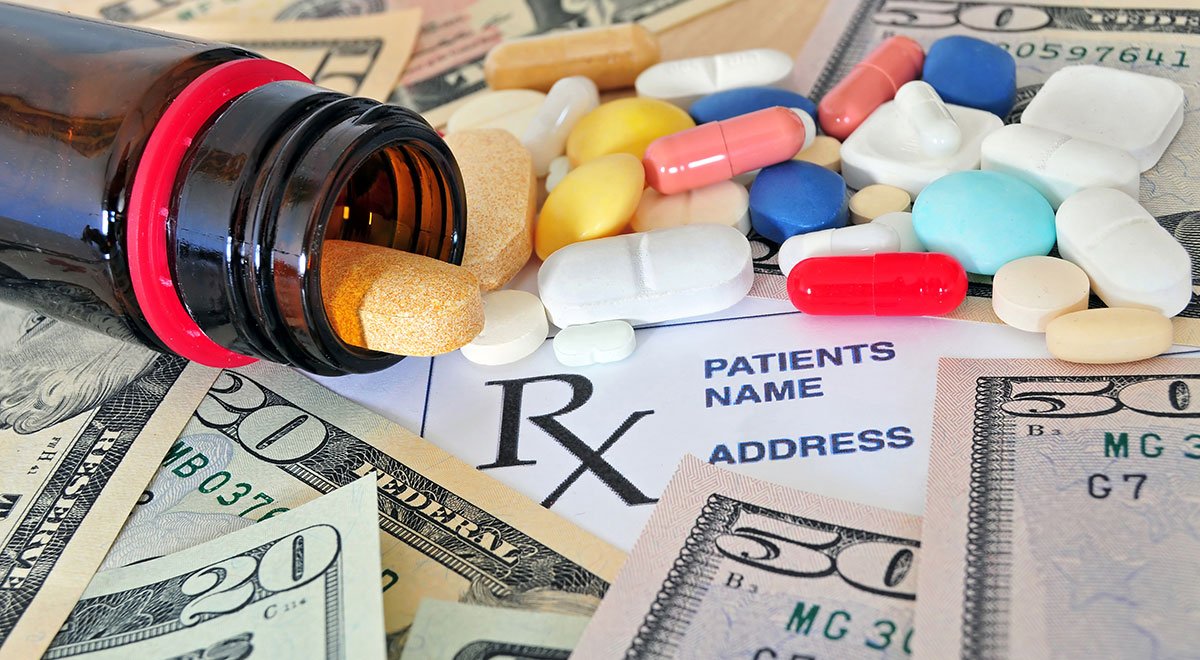Individually, they’re pretty inexpensive. Put them together, however, and they become worth almost half a billion dollars to Big Pharma. In the present case, naproxen, a prescription pain reliever marketed under the brand name Aleve, is one of them. The other is esomeprazole, a medication used to treat occasional upset stomach and bouts of acid reflux, better known as Nexium. Purchased separately at the corner pharmacy, a week’s supply of both runs approximately $10. Put them together into a single product, however, the weekly price tag jumps up to over $800.
Of course, that’s not what most insured patients pay at the pharmacy – that figure is the amount for which the insurance company is billed by the drugmaker. Still, it illuminates yet another way in which Big Pharma runs con games that make the for-profit American health care “system” the most expensive and one of the least effective in the developed world.
This particular business model is not unknown in other industries. For example, many years ago, Oscar-Meyer developed a product consisting of lunch meat slices with bits of cheese embedded in them. Similarly, the Smuckers Corporation had a product known as “Goober ‘n’ Grape,” a mixture of peanut butter and grape jelly. Both of these products were a bit more expensive, but for an extra fifty cents or so, consumers decided the extra convenience was worth it, since many have those combinations on their sandwiches on a regular basis.
The combination, or “convenience” drug that is a mixture of naproxen and esomeprazole is known as Vimovo, a product of Horizon Pharma. They also make Duexis, a blend of ibuprofen and famotidine (marketed as Pepcid), the latter of which is also used to treat acid reflux as well as peptic ulcers. The company motto is “Innovative Therapies for Life,” but there isn’t much innovative about taking two old medications and combining them and marketing them under a new name. It is certainly profitable, however; whereas taking 220 milligrams of Aleve along with 20 milligrams of Nexium costs only about eighty cents a day, a daily regimen of Vimovo runs as much as $55 a day.
Analgesics such as Aleve, as well as common aspirin and ibuprofen (collectively known as nonsteroidal anti-inflammatory drugs, or NSAIDs), do cause stomach upset in many individuals when taken on a regular basis over an extended period of time. The alternative was a class of pain relievers known as “cox-2 inhibitors,” the first of which was Celebrex. It was never cheap, however. Even today, the generic version of that prescription (Celecoxib) runs approximately $2 per pill.
Back around 2007, researchers discovered that by taking esomeprazole along with NSAIDs, patients could avoid stomach problems. The problem is that esomeprazole was still costly, so there was no real economic benefit to consumers. Today, however, Nexium is available over the counter, with an average price of between thirty and sixty cents per pill.
Why does Horizon Pharma do it? Because they can. How do they get away with it, and why to consumers fall for it? That is the $500 million question. Part of this con game involves the relationship between Horizon and physicians. The company does an end-run around pharmacies, asking physicians to submit patient prescriptions directly to its own mail-order pharmacy. This way, consumers (at least those who are covered) don’t realize how high these larcenous co-pays really are – and what an exorbitant cost is being extracted.
And of course, when insurers or the government have to cough up these costs, they invariably get passed on to consumers in the form of higher premiums. Devon Herrick of the National Center for Policy Analysis agrees. “It’s a scam…just a way to gouge insurance companies or employer health care plans.”
Horizon Pharma’s response? “The price of Vimovo is based on the value it brings to patients.” They also claim that theirs is a “special formulation,” so as to discourage patients who get wise to this scam from simply purchasing the medications separately.
Don’t be fooled. If your doctor prescribes Vimovo, ask the hard questions – then, if possible, get a second opinion. Chances are, you’ll be able to do the formulation yourself for a small fraction of the extortionist price Horizon Pharma demands.

